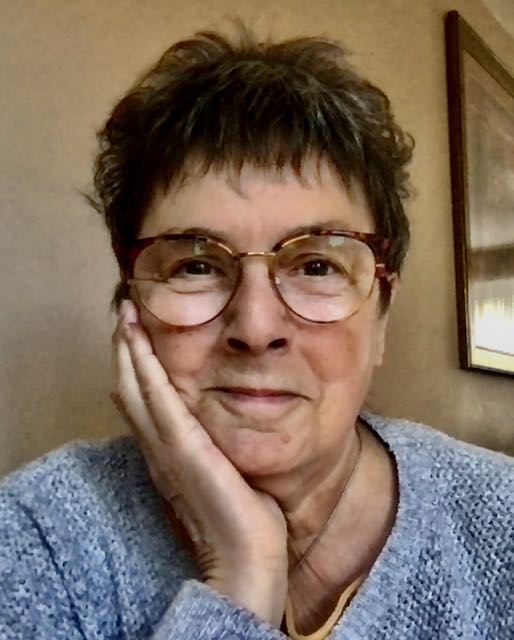This review first appeared in The High Window.
Jane Lovell has a gift of researching the most extraordinary facts for her poems and then bringing them to life with her distinctively sensuous choice of words and image. She effortlessly weaves scientific understanding into her poetry. The poems in her latest collection On Earth, as it is published by Hazel Press are not just about the natural world but about man’s cruelty and ignorance. The ingenious title is a phrase from the Lord’s Prayer but the cover illustrating an OS map from the 1930’s keeps the collection firmly on the ground.
Jane Lovell is a multi-award-winning poet and has read with Simon Armitage. Many of her poems have won or been placed in major competitions. On Earth, as it is contains ‘Ming’, the winner of the Gingko Prize in 2020, which is about a centuries-old bivalve mollusc which was accidentally killed by researchers:
Muscle and foot we scrape you
out, put you to one side,
globby and unfortunate.
Measured and elegant lines build momentum like lines on the mollusc’s shell:
Carved into your shell
we find trade routes, the wake
of explorers, contours of underwater
mountains, the migratory patterns
of whales.
It’s ironic that it’s the scientists who end up killing this most ancient creature and yet lovingly name it Ming:
We wrap your gummy form
in polythene, keep it on ice.
But mankind is not just careless of creatures but also of people and ‘Execution 1554, artist unknown’ hovers over the scene of Lady Jane Grey’s execution after which, it is said, her eyes were pecked by the Tower ravens:
It’s where the world disappeared
as the blade fell, the last scene
captured through a splint of light.
By focussing on the details of colour in the picture she renders this horrific scene both beautiful and mesmerising. The fragmented lines and stanzas add to this. The cruel execution of an innocent woman for political purposes is pointed up by the ravens’ gloating on their ‘treasure’.
There’s quite a lot of death and decomposition in this pamphlet including an Inuit fish skin bag, a butchered whale, a drowned skylark, Nabokov’s collection of butterfly penises. In ‘Laika, you must understand’ the stray dog is addressed directly. This was the dog that was sent into space so that scientists could measure and track:
your frantic heart inside
its shuddering cage,
mapped your fear from peak to peak.
In ‘Vitulus’ the poet imagines the calf whose hide was used to draw the Herefordshire Mappa Mundi. She delves into the minutiae of its life among ‘grasses, buttercups, a mash of nameless leaves’ before it was slaughtered, its ‘organs a muddle of bloody parcels’. The age-old craft of preparing vellum for important documents is graphically described until finally:
The world is drawn inside your skin,
its scribed parchment shrinking at light:
the endless raking of the lunellum
remembered in its translucence.
Lovell’s knowledge of birds is passionate and scientific. In ‘Snowy Egret’ she describes a carcass so vividly she brings it back to life along with the enigmatic suggestion of another ‘small unborn life’, the phrase repeated twice. She ends this poem:
It takes your breath,
this symmetry,
the tattered beauty of the hunter
hunched about its final pulse.
‘Reasons for Sanderlings’ celebrates these easily-overlooked wading birds that live on the edge between sea and land ‘the long dark stored in their souls’. Plants are named. The detail is rich. This poem is addressed to a mysterious other, maybe mankind in general:
In the scurry of waves across grassland,
the sanderlings will guide you, show you,
how to hunt for burrowing crustacean,
isopods and plankton.
With its rhythm of melodic phrasing as well as the breathing of the longer and shorter stanzas the poem emulates waves, a tide coming in or going out by degrees:
We hold their future like a sphere of thinnest glass.
This marvellous poem set firmly on the shoreline as if on the map of the cover, is almost a hymn and ends:
They have learned to skip aside from the debris
clinging to the beaches.
They are here to remind us we cannot fly.
I will treasure this pamphlet for its remarkable imagery, precision, confident use of scientific vocabulary as well as its rich tapestry of colours and forms and the living, breathing layer of history.
On Earth, as it is by Jane Lovell. £10. Hazel Press. ISBN: 978-1-7394218-1-6



